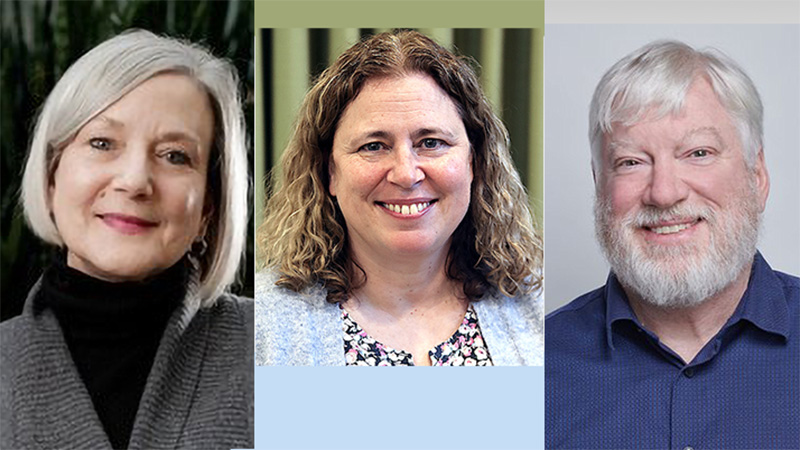Eric: Welcome to the GeriPal podcast. I’m Eric Widera.
Alex: This is Alex Smith.
Eric: Today, we will be discussing the role of end-of-life doulas. Joining us are Jane Euler, the lead doula and co-founder of Present for You, a benefit LLC company offering doula support at the end of life, and John Loughnane, a palliative care doctor and end-of-life doula, also co-founder of Present for You. Welcome to the GeriPal podcast, Jane and John.
Jane: Thank you for having me.
John: Nice to be here.
Eric: We are also pleased to welcome Beth Klint, the executive director of Goodwin Hospice, joining us from the DC area. Welcome to GeriPal, Beth.
Beth: Hi.
Eric: Before delving into the topic of end-of-life doulas, John, what song request do you have for Alex today?
John: I’d like to request Jimmy Buffett’s song “Bubbles Up.” It’s a poignant track that resonates with navigating difficult times, particularly in the context of Jimmy Buffett’s passing. The community response to the song was remarkable, symbolizing unity and resilience during challenging times.
Eric: A Parrot Head, you say?
John: Yes, like Deadheads, but for Jimmy Buffett fans.
Alex: Understood. Let’s hear a snippet of “Bubbles Up.”
(singing)
Eric: Lovely rendition, Alex.
John: Well done.
Jane: Yeah.
Alex: Thank you. Now, let’s shift our focus to end-of-life doulas. Jane, could you elaborate on the role of an end-of-life doula?
Jane: An end-of-life doula provides non-medical support, offering companionship, emotional presence, logistical assistance, and decision-making support to individuals facing serious illness or end of life. It’s about establishing a meaningful emotional connection and providing a comforting presence.
Eric: Are end-of-life doulas synonymous with death doulas, or are there distinctions between the two terms?
Jane: Yes, the terms end-of-life doula and death doula are interchangeable. The essence remains the same—providing non-medical support and companionship to individuals during their end-of-life journey.
Alex: John, as a palliative care doctor and end-of-life doula, what drew you to this role?
John: My experience during the COVID-19 pandemic highlighted the limitations of traditional medical interventions in providing holistic care. Becoming an end-of-life doula allowed me to offer a different form of support, focusing on emotional connection and reflection rather than medical solutions.
Eric: Beth, as the executive director of Goodwin Hospice, how do you see the integration of end-of-life doulas in the hospice setting?
Beth: End-of-life doulas complement the care provided by hospice teams, offering additional emotional support and companionship that may not be feasible within the constraints of traditional healthcare structures. They fill a crucial gap in providing personalized, human-centered care.
Alex: Jane, what are the key triggers or indicators that suggest the need for an end-of-life doula’s support?
Jane: End-of-life doulas can be beneficial in various situations, such as navigating new diagnoses, facilitating family discussions, providing emotional advocacy, and offering a supportive presence during challenging times. Their role extends beyond medical care to address emotional and relational needs.
Eric: John, how do end-of-life doulas navigate their role in states where medical aid in dying is legal?
John: End-of-life doulas can play a supportive role for individuals considering medical aid in dying, offering emotional support, companionship, and guidance throughout the decision-making process. Their non-medical perspective can complement the medical aspects of end-of-life choices.
Alex: Beth, from your perspective at Goodwin Hospice, what are the potential benefits of incorporating end-of-life doulas into the care team?
Beth: End-of-life doulas bring a unique form of support and companionship that enhances the quality of care provided to patients and their families. By offering emotional guidance and personalized assistance, they contribute to a more holistic and patient-centered approach to end-of-life care.
Eric: John, if you could envision the ideal future for end-of-life doulas, what changes or advancements would you hope to see?
John: I envision a future where end-of-life doulas are recognized and integrated into interdisciplinary care teams, receive standardized training across healthcare professions, and play a pivotal role in providing holistic, patient-centered care to individuals facing serious illness or end of life.
Jane: Additionally, I believe that end-of-life doulas should be incorporated into professional training programs and be considered an essential component of comprehensive care for individuals at the end of life.
Eric: Beth, as we wrap up, what are your hopes for the future integration of end-of-life doulas in healthcare settings?
Beth: My hope is to see more creative approaches to meeting the diverse needs of individuals facing serious illness or end of life, with end-of-life doulas playing a crucial role in providing emotional support, companionship, and personalized care. By expanding access to this valuable resource, we can enhance the quality and compassion of end-of-life care.
Alex: Thank you to our guests for sharing their insights on the role of end-of-life doulas. And thank you to our listeners for tuning in to the GeriPal podcast.
